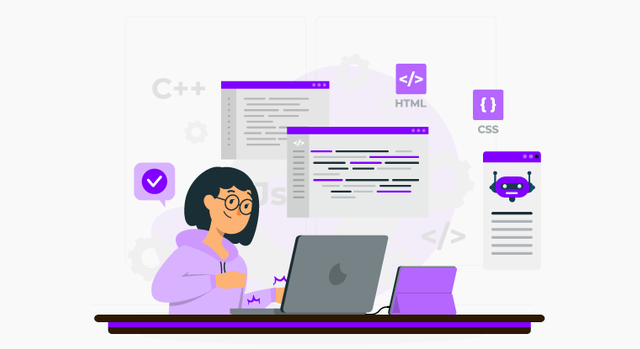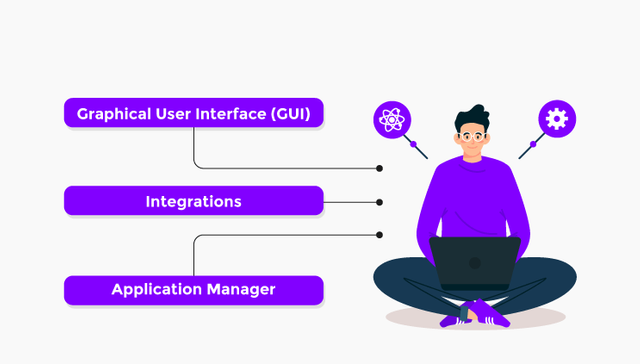With digital transformation and ML improvements, more organisations are adopting AI into their workflow. 50% of businesses use AI.

According to a Deloitte study, many respondents say cognitive technologies are "important" or "very crucial" to service offerings and internal corporate procedures. These companies feel AI is crucial to their ability to grow and compete.
As the need for integrative AI develops, so do no-code and low-code platforms. This article explains "low-code" and its benefits.
What Exactly Is Low Code Programming?
Low code app builder tool lets non-AI specialists develop AI apps from predefined components. These platforms are founded on an intuitive graphical user interface in application design and visual programming.
Low-code platforms for AI development offer enormous cost savings, faster time-to-market, enhanced product scalability, and a seamless user experience.
Various Low-Code AI Elements
The following infrastructural parts are found in the majority of low-code AI platforms.
Interactive Graphics (GUI)
The easy design of AI systems with no ambiguity regarding input and output is made possible by an intuitive GUI that is understandable even by non-specialists and has obvious graphic characteristics.
Integrations
In order to interact with your company's data, the built application needs access to your company's database. The developers of low-code AI platforms make use of APIs to enable the new software to communicate with the database in a secure and efficient manner.
Application Supervisor
The building of an app employing a low-code AI platform is just the beginning of the software development process. The programme needs to be regularly updated and maintained in order to work effectively. Additionally, the platform on which you build the app typically offers debugging services to help you fix bugs and enhance the app's functionality.

Every business needs low-code AI
Low-code application development platform allows a much broader audience of people to participate in building application functionality by minimising the programming skills necessary and making the design process more visible and clear. With implementation issues abstracted, users may focus on what must be done. Thus, low-code AI platforms are quickly gaining favour. Low code application development has various benefits.
Easy-to-integrate
Low-code AI is customizable via platforms and modules. Low-code AI may often be adjusted to meet commercial needs.
Less Expensive Than Custom AI
Costly custom AI implementation. No-code AI could be a solution for companies who want to employ AI with less stress and without hiring an AI team.
Low-code platforms allow users to incorporate only those aspects that are critical to the organisation. Focusing only on what is necessary, organisations may drastically decrease development expenses. The platforms also enable for timely upgrades and other software maintenance activities without the need for dedicated people, as low code app builder can be produced by non-technical users.
Market Penetration
Without a basic foundation, technology might be difficult to grasp. Furthermore, finding and maintaining the proper technical professional to create the essential application may take a large amount of your time, delaying the product launch. No-code AI may help organisations build products quickly and execute their go-to-market plan faster.
Summing It Up
AI app builder gives enterprises limitless commercial options. No-code AI could help companies become market leaders in creative ways.
500apps' AppUp is a low-code platform. This platform offers interactive app creation without programming. You may automate and abstract development with their user-friendly interface components, plugins, and nodes. The platform's drag-and-drop interface makes app development straightforward.
AppUp's browser-based cloud platform speeds up app design, development, and distribution. The platform improves app development speed and control. You can copy your design to create similar apps. AppUp by 500apps accelerates idea-to-release development. Learn more online.